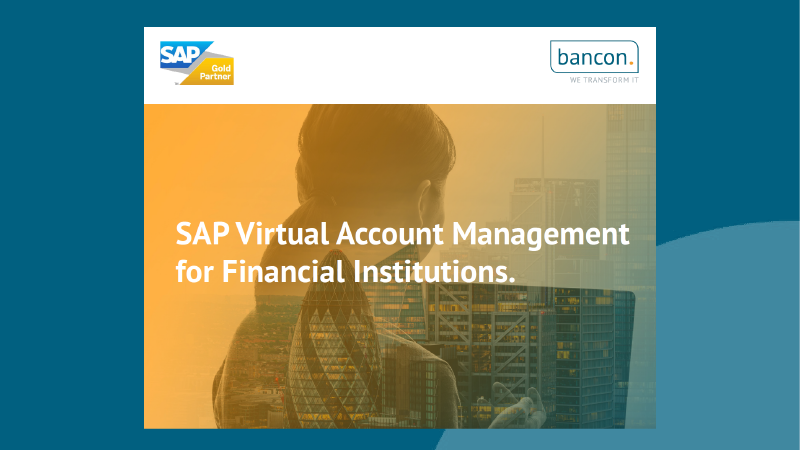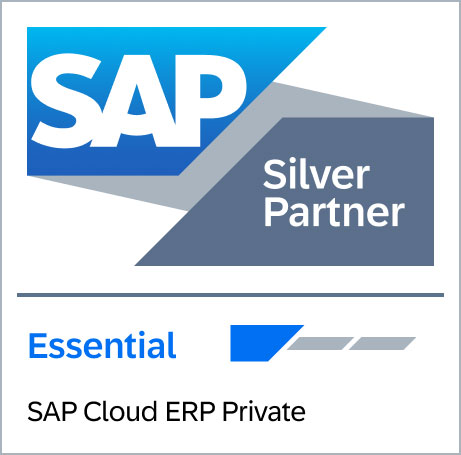Bradley Jarrett, Director, Financial Services Transformation at bancon is responsible for the group’s global financial services offering, strategy, sales, people and customer engagements, with programs spanning the United Kingdom, Continental Europe, Middle East and North America.
We sat down with Bradley to find out more about his background in banking, how his experience at Lloyds Banking Group led him to where he is today and his vision for the future of Virtual Account Management.
Tell us about your background and what brought you to bancon?
My background has always been banking. I spent nine years working my way up at Lloyds Banking Group from Cashier, to Bank Manager, to Senior Product Owner within their Group Transformation function. Whilst there, my remit spanned mortgages, wealth management and corporate banking overseeing commercial banking lending and cash management products. However, my journey to bancon really began when I became the lead product owner for Cash Management at Lloyds, working for the Global Transaction Banking division which had a £300 million cash injection from the Group. Our goal was to be the number one Cash Management and Payments provider by offering a real-time, API first, fully self-serve capable service. We partnered with SAP for the underlying platform, but there was a gap within SAP Core Banking proposition – Virtual Accounts. It was from here where I started an 18-month process of discovery, design and development of a brand-new Virtual Account Management solution for Lloyds.
As a client, I got to experience working with the bancon team without actually knowing it was them. For us, we just knew them as SAP. Their knowledge and expertise mirrored what you’d expect from SAP themselves and their attitude was just so genuine. They cared about the end customer experience just as much as I did, which was just a breath of fresh air and nothing I had experienced from any external vendor before.
Nine-months after leaving Lloyds, I was at HSBC heading up Digital Retail Business Banking when bancon approached me to continue the journey of building out this new SAP Virtual Account Management solution in close partnership with SAP, along with wider initiatives. Excited about the opportunity to work again with that team I jumped at the chance and have never looked back.
What is it about Virtual Account Management that drew you back?
Virtual accounts are one small part of my role, however it’s very personal to me and those from bancon who worked on the foundational product. The opportunity to design a solution from the ground-up rarely presents itself, but on this occasion it did and we collectively took ownership of that responsibility. It became our lives for 18-months where we poured a lot of love and late nights working to ensure every detail represented what a best-in-class solution should have.
For me, what makes Virtual Account Management so compelling is it’s one of the few products that, thanks to advances in technology, has really come into its own.
It’s not new. It’s been around since the 80’s but due to the lack of technological sophistication, it caused just as many inconveniences as it did benefits. However, with the convergence of open banking, real time data, and enhanced analytics it has overcome those early issues and is now positioned as one of the leading cash management offerings, generating real efficiency gains for those who have adopted it.
So why haven’t more businesses adopted Virtual Account Management? What are some of the barriers?
Perception. A lot of Corporate Treasurers were introduced to Virtual Accounts in the 80s and 90s when functionality didn’t marry up with expectation. It’s this poor perception that seems to cloud judgement and slow down further adoption.
The other barrier is access. Banks have historically never offered Virtual Account Management and if they did, it was rarely invested in. Virtual accounts were more a protector of revenue than a generator of it, so investment was often prioritised to areas that generated additional income. Over the years, it became recognised as a half-baked treasury solution with corporate businesses seeing little benefit. Therefore, access has only really been available to corporate businesses who had the capital to invest in technology providers directly and extend their own ERP capability.
What are some of the consequence’s banks will face if they don’t introduce a Virtual Account Solution in the next 12-months?
All businesses, especially those within transactional banking, look to their bank as more of a provider of tech than a traditional bricks and mortar bank. The expectation for seamless user experience has never been so high. The likes of Monzo, Starling, Revolut and N26 have shown us what convenience feels like as a consumer and have extended that offering into business banking, setting a new standard that traditional banks cannot afford to overlook.
If the incumbents don’t invest in their infrastructure and support innovative propositions that make the lives of their customers easier, their customers have two options. Seek out the technology provider directly or switch to a bank that can support their needs.
In 2019, Oracle released a whitepaper that quoted, “50% of banks are looking to invest in a Virtual Account Solution in the next 18-month.” That time period has now been and gone and in the UK, there are only a handful of banks with the who have invested in a new or existing virtual account solution – the majority of which are disruptive digital banks, or large US banks such as Goldman Sachs who have made a power-play in recent months and recently announced the introduction of their new virtual cash management to the UK Global Transaction Banking market.
How do you see Virtual Account Management evolving over the next five years?
I expect the increasing pressure from businesses wanting to increase efficiency and decrease operational costs, along with increase real-time cash visibility, will in turn drive awareness and adoption across the banks. We’ve seen intent from lots of banks – but very few have actually implemented. By 2026, I think all major corporate treasury teams will be regularly using and applying Virtual Account solutions to their day-to-day treasury functions. It’s not if, but when.
In turn, this adoption will spin off a lot more use cases that will then be coupled with emerging technology to drive further innovation. Open banking is one of the single biggest disruptors and it’s not quite hit the corporate banking sector. There are lots of conversations happening around how it will revolutionize corporate banking but it’s not quite translating into real world gains at the moment.
I also see virtual account solutions being more commonly used by small and medium businesses, who like corporate treasury teams want to increase their own efficiencies only on a smaller scale. This process is already underway and one of the key reasons why challenger banks including Starling, N26 and Monzo are making such gains in a segment that is crying out for some love and attention.
What would you say to anyone thinking about joining bancon?
If you want to be inspired and part of a team who really take pride in their work and care about the end user experience the bancon is the place for you. We were born with a start-up mentality and still maintain that can-do attitude which believes it can make businesses better through true digital transformation. It’s just who we are and because of that, everyone has autonomy in their role, the freedom to be creative and encouragement from our Founders to really make a difference. Anyone looking to set themselves a new challenge is welcome to reach-out to me directly and ask me any questions.




